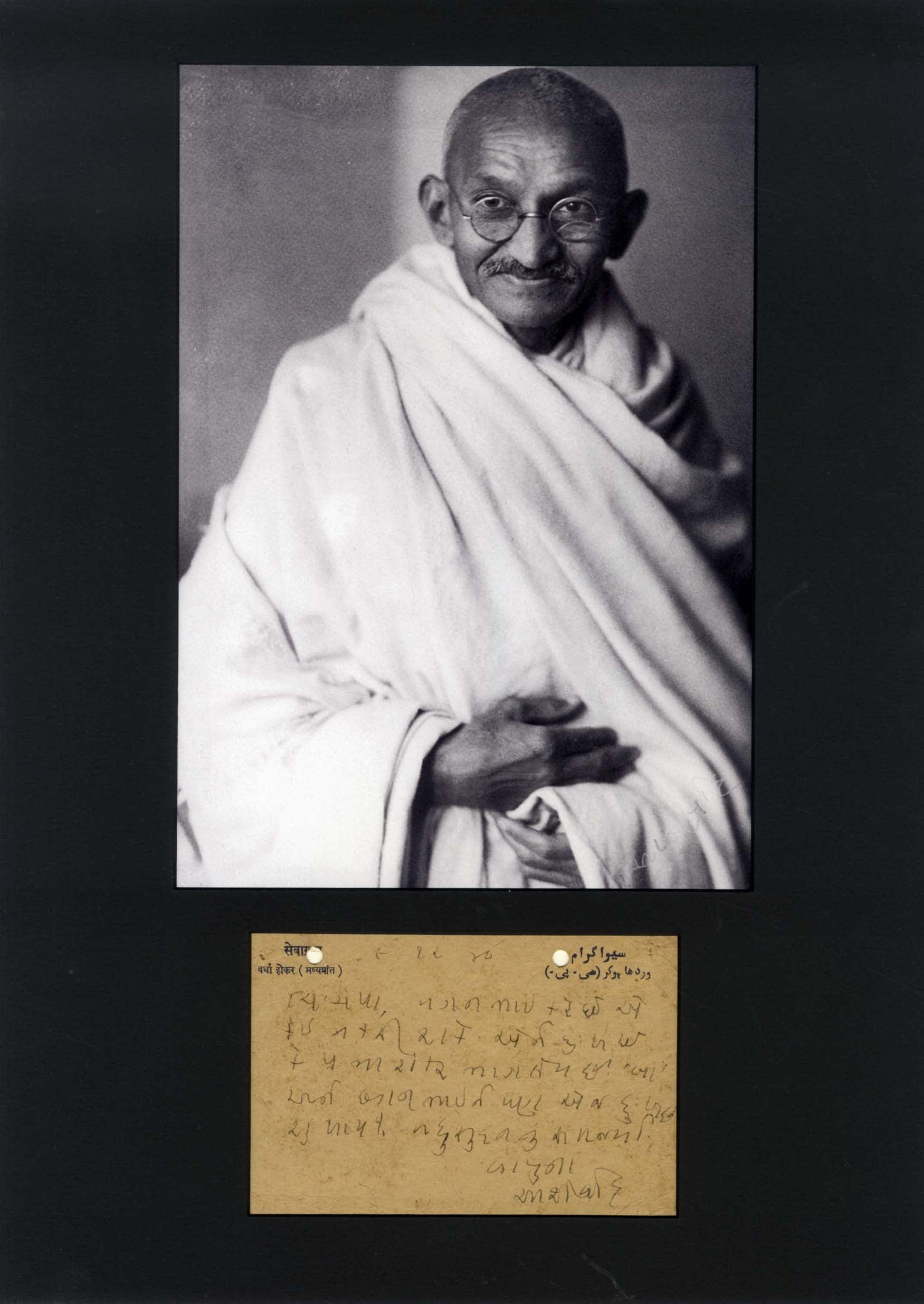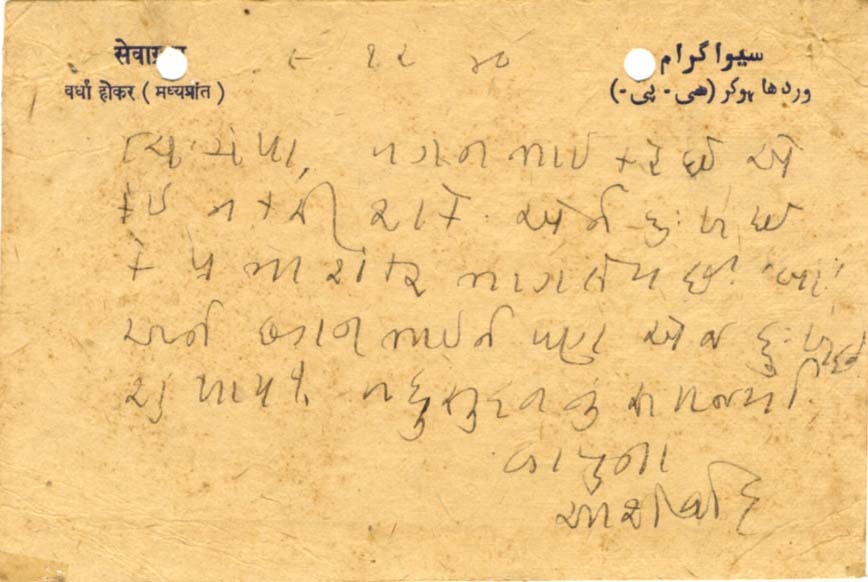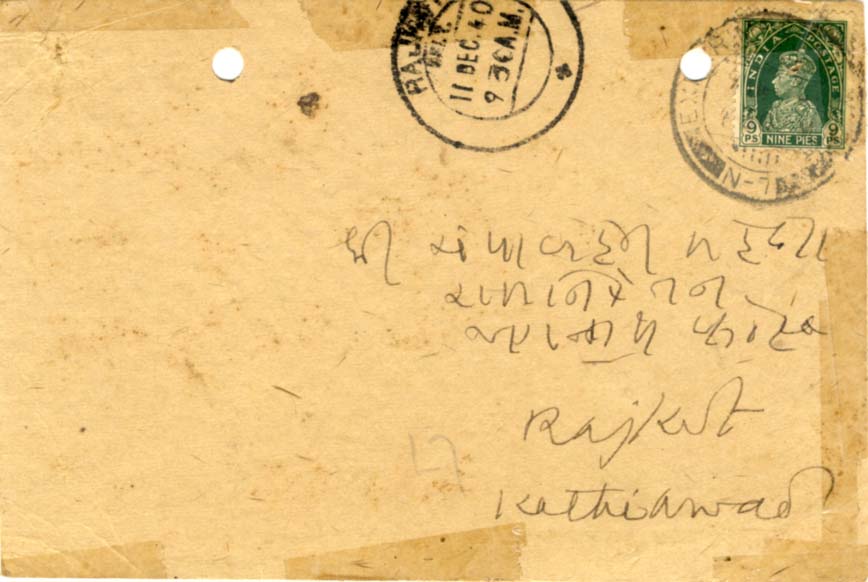Descripción
Autograph letter signed, 1 1/2 pages (both sides - with postage stamp & postmark verso), 5,75 x 4 inch, (Rajkot), 9.12.1940, in Gujarati, Gandhi mentions Kasturba Gandhi* and Abdul Ghaffar Khan**, among others, written and signed in black ink, attractively mounted (removable) for fine display with a photograph of Mahatma Gandhi in a half length portrait (altogether 11,75 x 16,5 inch), with mild foxing, small creases, and perforated to the upper edge - in fine condition.
"From: Sevagram, Wardha, Hokar Madhyaprant
Shri Champaben Mehta
Ram Niketan, Jagmath Plot, Rajkot, Kathiawad (English)
Chi Champa,
Whatever Magan Brother is doing (for you) that your aunt cannot do. He is unhappy that Prabhashankar is taking the share. `Baa` (Kasturba Gandhi) and Khan brother (Khan Abdul Gaffar Khan) also have expressed their unhappiness for the same. What can be done? It was understood as Madusudan`s.
Bapu`s blessings"
* Kasturbai Mohandas Gandhi (1869-1944) was an Indian political activist who was involved in the Indian independence movement during British India. She was married to Mohandas Gandhi, commonly known as Mahatma Gandhi.
** Abdul Ghaffar Khan BR (1890-1988), also known as Bacha Khan or Badshah Khan, and honourably addressed as Fakhr-e-Afghan, was a Pashtun independence activist, and founder of the Khudai Khidmatgar resistance movement against British colonial rule in India. He was a political and spiritual leader known for his nonviolent opposition and lifelong pacifism; he was a devout Muslim and an advocate for Hindu–Muslim unity in the subcontinent. Due to his similar ideologies and close friendship with Mahatma Gandhi, Khan was nicknamed Sarhadi Gandhi ('the Frontier Gandhi').
Más información sobre la persona
Profession:
(1869-1948) preeminent leader of Indian nationalism in British-ruled India
Year of Birth: 1869
Certificado de autenticidad
Todas nuestras piezas se venden con un certificado de autenticidad. Si una pieza resulta estar equivocada o si no le gusta un autógrafo, recuperará su dinero durante toda la vida.
Pago y seguridad
Su información de pago se procesa de forma segura. No almacenamos los detalles de la tarjeta de crédito ni tenemos acceso a la información de su tarjeta de crédito.



